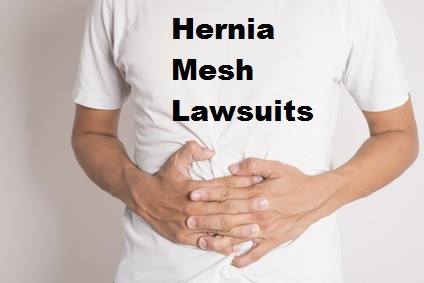On August 2, 2018, the Judicial Panel on Multidistrict Litigation (JPML) created a new MDL for the federal lawsuits alleging injury caused by polypropylene hernia mesh products manufactured by C.R. Bard Inc. and subsidiary Davol Inc. (The alleged injuries include adhesions, damage to organs, inflammatory and allergic responses, foreign body rejection, migration, infections and other injury.) In the August 2 Order, the JPML ordered the transfer of the cases to the U.S. District Court for the Southern District of Ohio before Judge Edmund A. Sargus for coordinated or consolidated pretrial proceedings. (An MDL is a type of legal proceeding that helps federal courts efficiently manage many similar cases filed in many different federal courts across the U.S. by allowing the temporary transfer of all of the federal civil lawsuits to one or more district courts for pretrial consolidation or coordination. The JPML is a group of federal judges designated by the Chief Justice of the United States, which has the responsibility for determining which cases qualify for MDL treatment, as well as which district court to transfer and consolidate these cases. The transfers are made if the Panel determines that the transfers will result in the convenience of the parties and witnesses and will promote the just and efficient conduct of the cases. For more information about MDLs and the JPML, contact Borgess Law.)
Specifically, the Court held:
“On the basis of the papers filed and hearing session held, we find that these actions involve common questions of fact, and that centralization in the Southern District of Ohio will serve the convenience of the parties and witnesses and promote the just and efficient conduct of this litigation. All of the actions share common factual questions arising out of allegations that defects in defendants’ polypropylene hernia mesh products can lead to complications when implanted in patients, including adhesions, damage to organs, inflammatory and allergic responses, foreign body rejection, migration of the mesh, and infections. Centralization will eliminate duplicative discovery; prevent inconsistent pretrial rulings; and conserve the resources of the parties, their counsel, and the judiciary.”
There are many different hernia mesh products by different manufacturers, including for example, Ethicon’s Physiomesh Hernia Mesh, Atrium’s C-QUR Hernia Mesh, C.R. Bard’s Kugel Hernia Mesh, 3DMax Hernia Mesh, PerFix Hernia Mesh, Ventralex ST Hernia Mesh, and Sepramesh Hernia Mesh. If you do not know what type of hernia mesh you or a loved one had implanted, we can help you find this out.
How We Can Help:
If you or someone you love has suffered an inadequate repair, adhesions, infections, hernia recurrence, bowel obstruction, sepsis, other complication, injury, or death following hernia surgery, you should be aware of the ongoing litigations. Again, if you do not know what type of hernia mesh was implanted, we can help you find this out.
Attorney Pamela A. Borgess, the founder of Borgess Law, LLC, has extensive experience with numerous national high-profile defective medical drug/device cases and can discuss your legal options. For more information about the hernia mesh litigation or to discuss a potential claim, contact Borgess Law at (567) 455-5955. You can also contact Borgess Law by submitting an online inquiry. Borgess Law never charges for initial consultations. We welcome any questions you may have.
